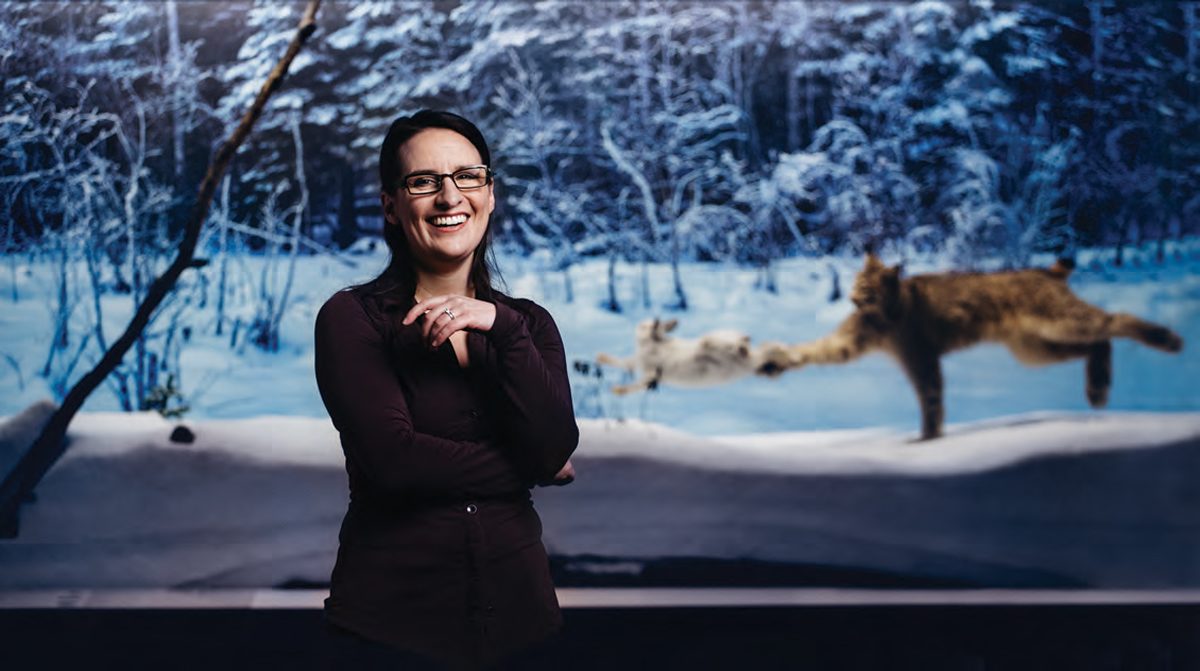
Christa Burstahler
Spring 2019
She spent her childhood in motion, born into a family with “a short attention span” who sought adventure and lived in nearly every province. Now, Christa Burstahler [PHD/18] studies the roaming Canada lynx as part of conservation efforts to protect these mysterious, solitary cats with the oversized paws—who are native to North America but seldom seen.
If a lynx were human, what kind of person would it be?
Picky. They’re the connoisseurs of the boreal forest. They have a refined taste for food and habitat, and prefer their own company so they don’t have to deal with others’ grief.
Because lynx are so elusive, you studied pelts for sale at auction?
A major advantage of using fur auction houses is that I was able to research lynx populations literally across the continent over a six-year period. We posed research questions that previously were unanswerable because it would be logistically impossible. I would take a sample of skin and hair tissue from these pelts for all kinds of lab analyses to learn what they ate, their stress physiology or genetics.
What did you find?
Some are way more generalized in their feeding than we thought. I mean, you grab any ecology textbook and look up “specialist consumer” and it will give lynx as the example because they’re so specific to snowshoe hare. And yet southern populations are behaving quite differently and eating alternative prey species like red squirrel. Lynx numbers there are dwindling and climate change is just going to amplify that, so it’s encouraging they’re more flexible.
How come they’re dwindling?
We’re not really sure. There are some obvious culprits: human development means less habitat and their preferred food. They have to move further afield. There’s more competition for food; suddenly they overlap with other predator species like bobcats.
What’s with the high-pitched noises lynx make when they fight?
It’s pretty spectacular. It almost sounds like a baby crying. They very apprehensively start screaming at each other—it’s a vocal threat before they throw punches, like they don’t actually want to hurt themselves or each other if they don’t have to.
Could a human take a lynx?
I guess it depends how well you practiced your scream.
When did you first see one in the wild?
I was 11 or 12 on a ski hill in Alberta. There was a mom and three kittens playing under the chair lift. That was one of the best days of my life.






